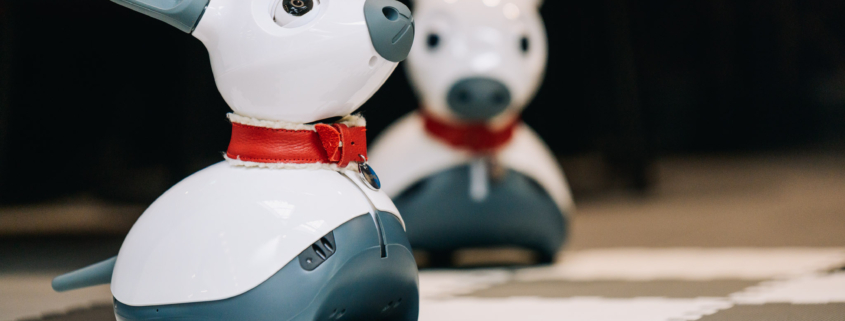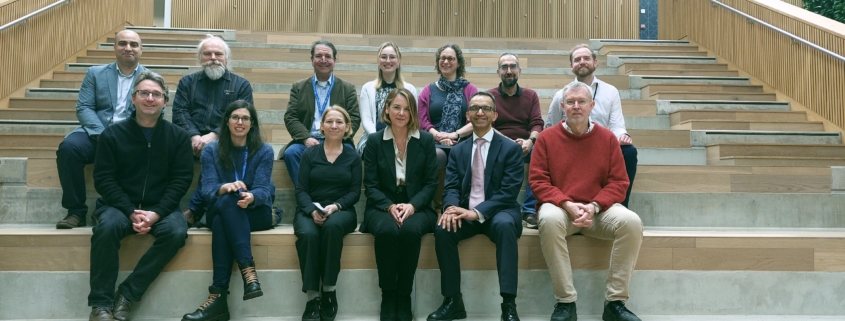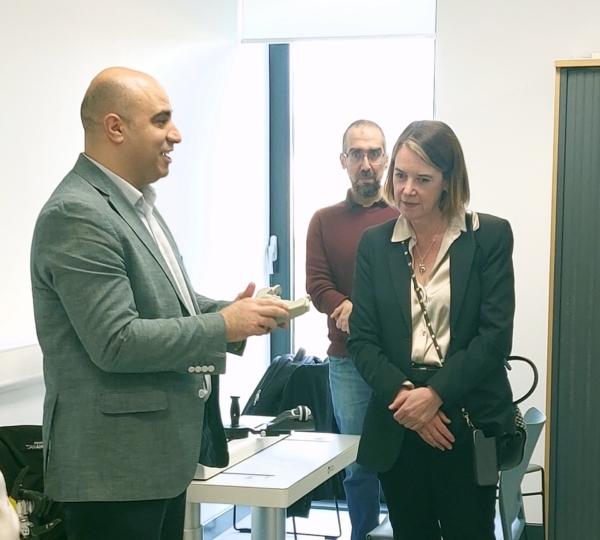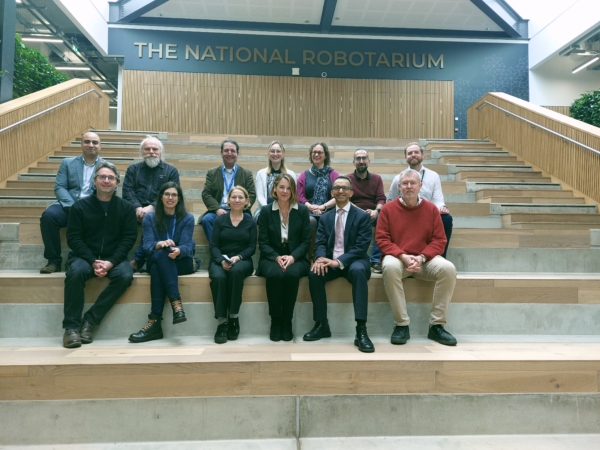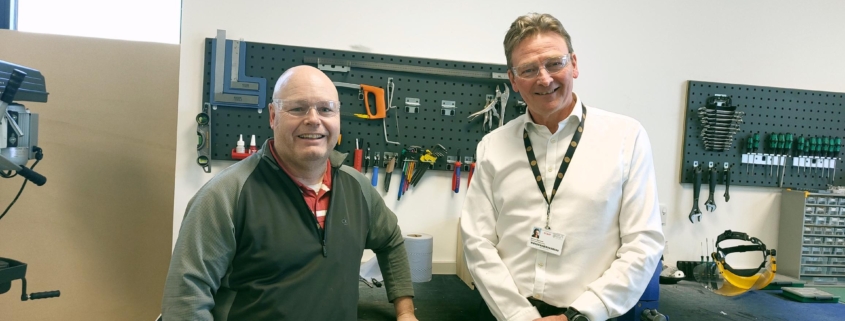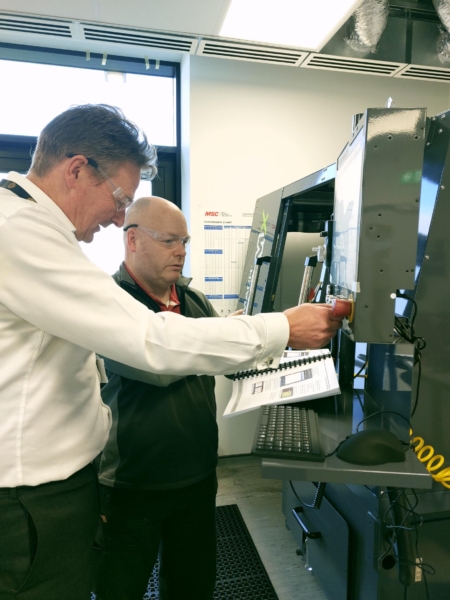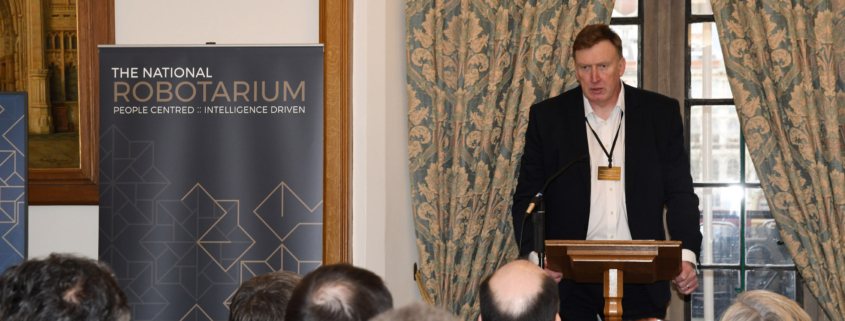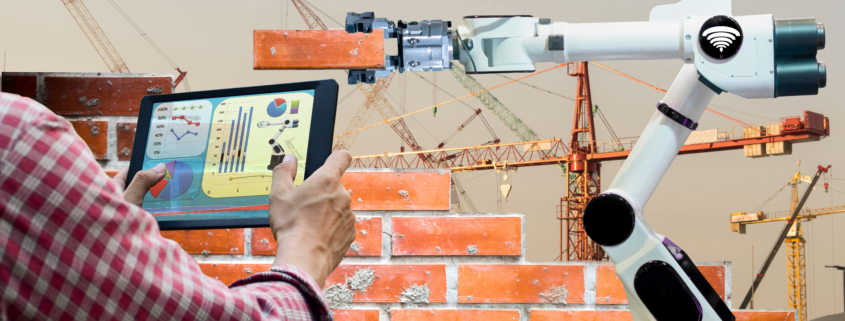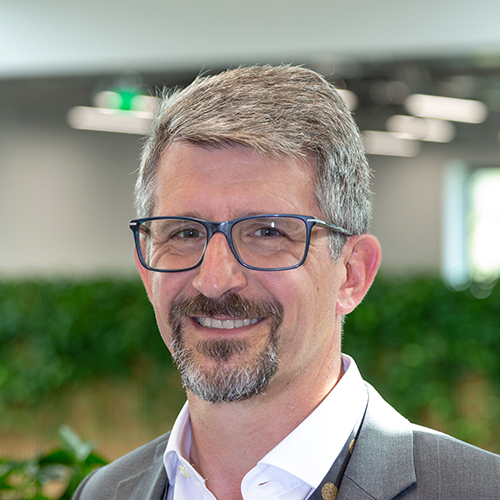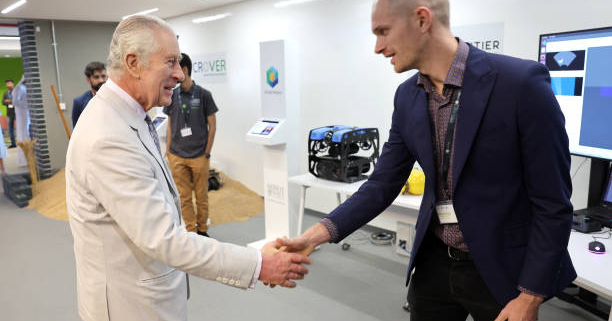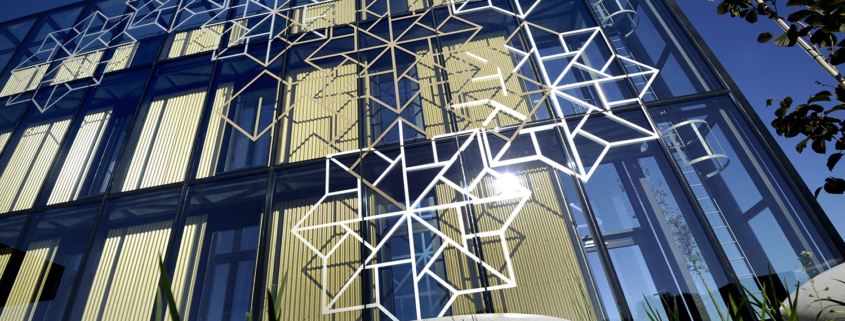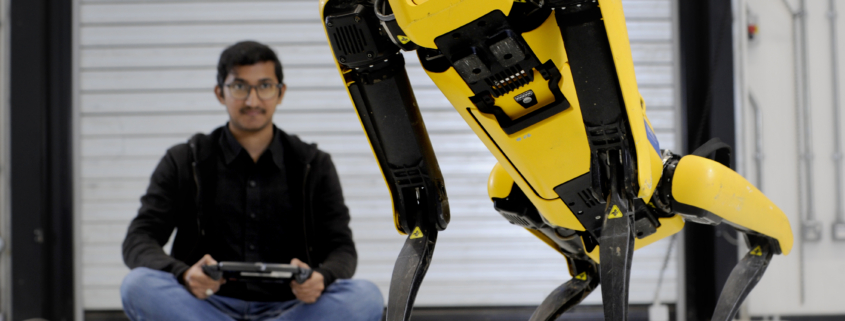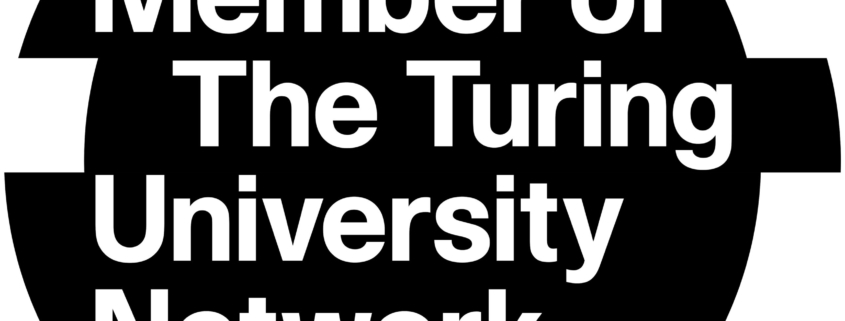I knew when it began that 2023 was going to be an interesting year. I had secured a Royal Academy of Engineering Enterprise Fellowship to pursue Frontier Robotics, a new spin-out created to advance software for underwater robotic autonomy, exploration and inspection and had one year to make the company a reality. Little did I know that, by the year’s close, I would be exhibiting our technology in Dubai during COP28, the world’s largest climate change conference, and meeting VIPs, including royalty!
The support included in the Fellowship provided a great grounding to this whirlwind year. As well as a year’s salary, it offered new Fellows a business support programme, consisting of several days intensive business training from St John’s Innovation Centre with expert advice encompassing pitching, branding and marketing, finance, and legal – all the foundational elements of a fledgling business – as well as access network of ~600 other startup companies. The Fellowship also provided a £15k business support grant that I put towards early-stage financing, webservers, and integrating our core produce AUIP (Autonomous Underwater Inspection Payload) with an ROV manufacturer for a potential future partnership in Norway.
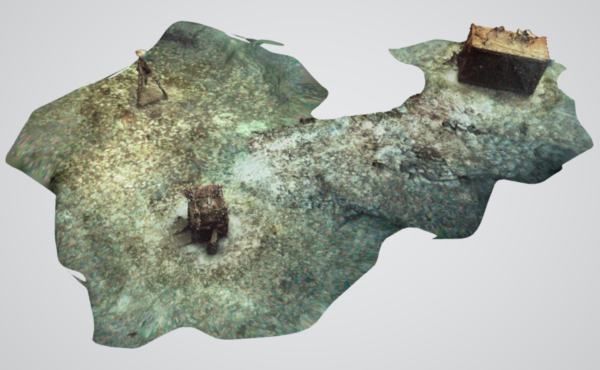
3D reconstruction from testing in a harbour in Norway
The advice and insight from the Fellowship proved invaluable. In May, Frontier Robotics won £100k grant at the Scottish EDGE Awards, the highest possible funding, including a special EDGE prize for Net Zero. This was only our first attempt (I’d heard anecdotally that most successful companies take at least two), so it really proves the effectiveness of the business support I’d had to that point. Particularly learning how to effectively pitch our business in less than 3 minutes.
The Scottish EDGE win changed everything. The investment allowed me to expand the team – I now employ 1 full-time and 2 part-time engineers, as well as a PhD student one day per week – and establish a base for developing Frontier’s technology from theoretical research developed during ORCA Hub (the offshore robotics research project that was a precursor to the National Robotarium’s autonomous underwater robotics research theme), to practical commercial applications that can be adopted by industry.
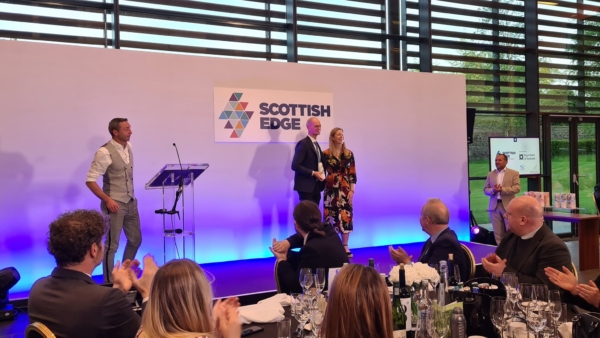
Jonatan Scharff-Willners winning the top prize of £100k at Scottish EDGE 2023
The win also led to an invite to join the Scottish Enterprise High-Growth Venture Programme, matching me with a mentor to support entrepreneurial skills development, develoeping my business models and helping me engage with investors to raise additional funding. I look forward to working with them over the next few months to accelerate the growth of the company.
Being part of the Heriot-Watt University ecosystem has reaped its rewards. In 2022, ORCA won ‘Research team of the year’ at the Heriot-Watt people celebration awards, and we were a finalist in the Times Higher Education Awards, two significant achievements that felt like the peak of success. Little did I know it was just the beginning of a much larger adventure, preceding a year when I gained more knowledge and experience than I could have imagined!
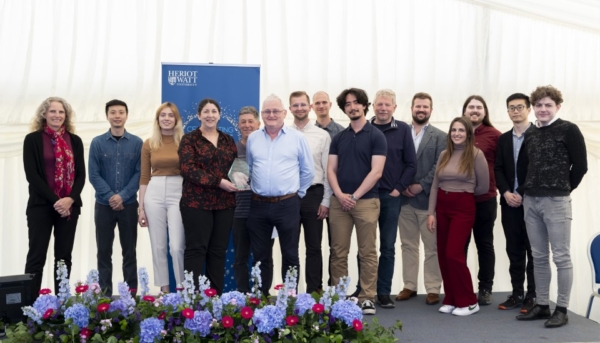
The ORCA hub wins Research Team of the Year at the 2022 Heriot-Watt University ‘Celebrating our People’ Awards
The in-house Business Development team at Heriot-Watt have also been incredibly supportive throughout the year, offering advice, invites to events and networking opportunities. The team at GRID was instrumental in my participation in the Clean Tech exhibition, part of the Climate Hub programme running at Heriot-Watt’s Dubai campus during COP28. They approached me to showcase the business at an exhibition space visited by scientists, policymakers, schools, invited guests and VIPs throughout the global conference.
I was honoured to exhibit alongside nine other companies that are developing technologies and products for a more sustainable future. These included Crover, also based at the National Robotarium, who have created a burrowing robotic drone to test the environmental conditions of grain silos, feeding back data to help farmers reduce waste caused by moisture and pest infestations; and Smartrawl, headed by Professor Paul Fernandes from the University’s Lyell Centre for Earth and Marine Sciences, which has invented an AI-empowered fishing net to identify different species of fish and prevent bycatch of those not needed by trawlers.
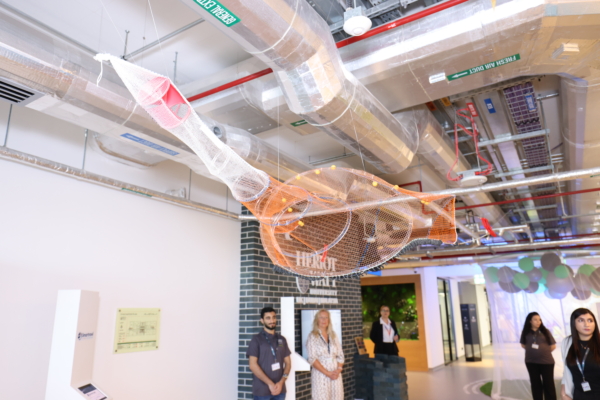
A prototype of the Smartrawl AI-empowered fishing net to prevent and reduce trawling bycatch
Meeting and sharing the space with these innovative businesses was one of the most beneficial aspects of the trip. We were able to share our experiences of running a startup and I got lots of valuable advice from those who have already navigated the potential and pitfalls of the Scottish funding and investment landscape. Being in an environment where we quickly connected and could share our successes and struggles bonded us immediately and it’s great to be part of a network of start-ups that can learn from each other’s mistakes and provide much-needed motivation.
The first day in Dubai was an exciting one. We had been informed that His Royal Highness, King Charles III would be visiting to officially open the campus and tour around the CleanTech exhibition and we each had an opportunity to pitch. Despite being told there was only enough time to speak for a single sentence, the King was hugely generous with his time, showing genuine interest in our companies and asking lots of questions. I loved his down-to-earth nature and, as someone who’s been championing sustainable futures for decades, it was clear he was very knowledgeable about the challenges and opportunities for green businesses in the UK.
The First Minister of Scotland, Humza Yousaf, was also in attendance on the first day. I had met him before at Scottish EDGE and enjoyed speaking with him again about energy transition in Scotland.
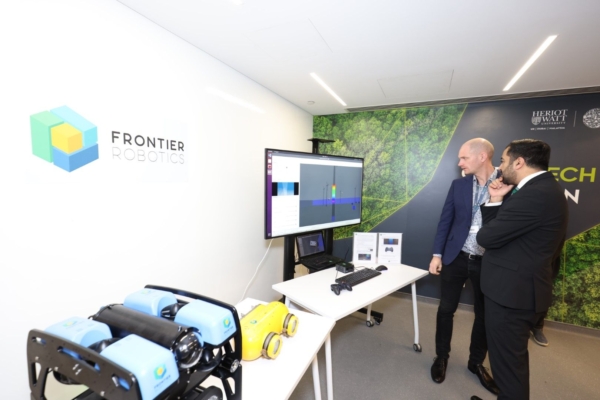
Jonatan and Scottish First Minister Humza Yousaf
Over the week, the event brought in over 1000 visitors and it was lovely to meet so many interesting people. Our activity challenged willing participants to become an offshore operator in under 2 minutes using our shared autonomy system that guides and approves the actions in a simulated robotic inspection system.
I was particularly impressed with how quickly the school groups were not only able to grasp the importance for creating a greener future together, but also their ability to pick up the task, controlling the autonomy engine, robot, and 2-camera system (all developed at the National Robotarium) with ease. Our vision for the future is to see robots and humans seamlessly working together and it’s important that people feel empowered to use and control them effectively.
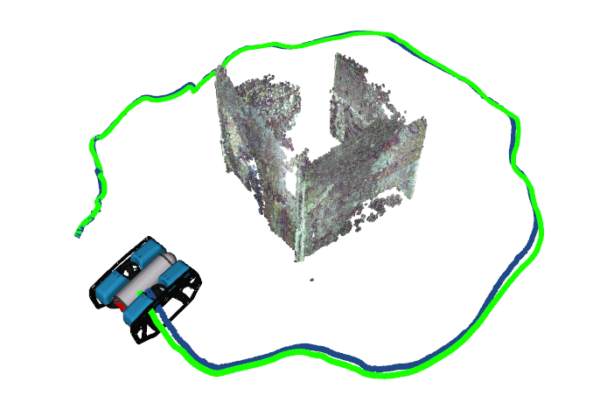
SLAM (simultaneous localisation and mapping) data
On our one day off, we were able to visit the COP28 exhibition arena and talk to some of the companies showcasing there. I was excited to see the latest inventions, learn what kinds of green tech we’re going to be using in the near-future and talk to potential investors.
What became really clear, really quickly, was that small start-ups and spinouts are leading the way for sustainable innovations, advancing new ideas and solutions to real-world problems quickly, and at scale. It’s an exciting time to be building a new business and heartening to see so many cool new companies coming through with a fresh vision, in comparison with bigger businesses who seem to be less transparent about what they’re doing to tackle climate change.
The week ended with some fruitful discussions with offshore industry representatives, and I’m excited that some have continued since I returned to Scotland.
In 2024, Frontier Robotics will be moving into our next phase of growing our industry portfolio and partnerships so it’s fantastic to have been able to connect with global companies and big industry names thanks to being part of Heriot-Watt University.
Jonatan, a Senior Robotics Engineer, and Frontier Robotics are based at the National Robotarium



